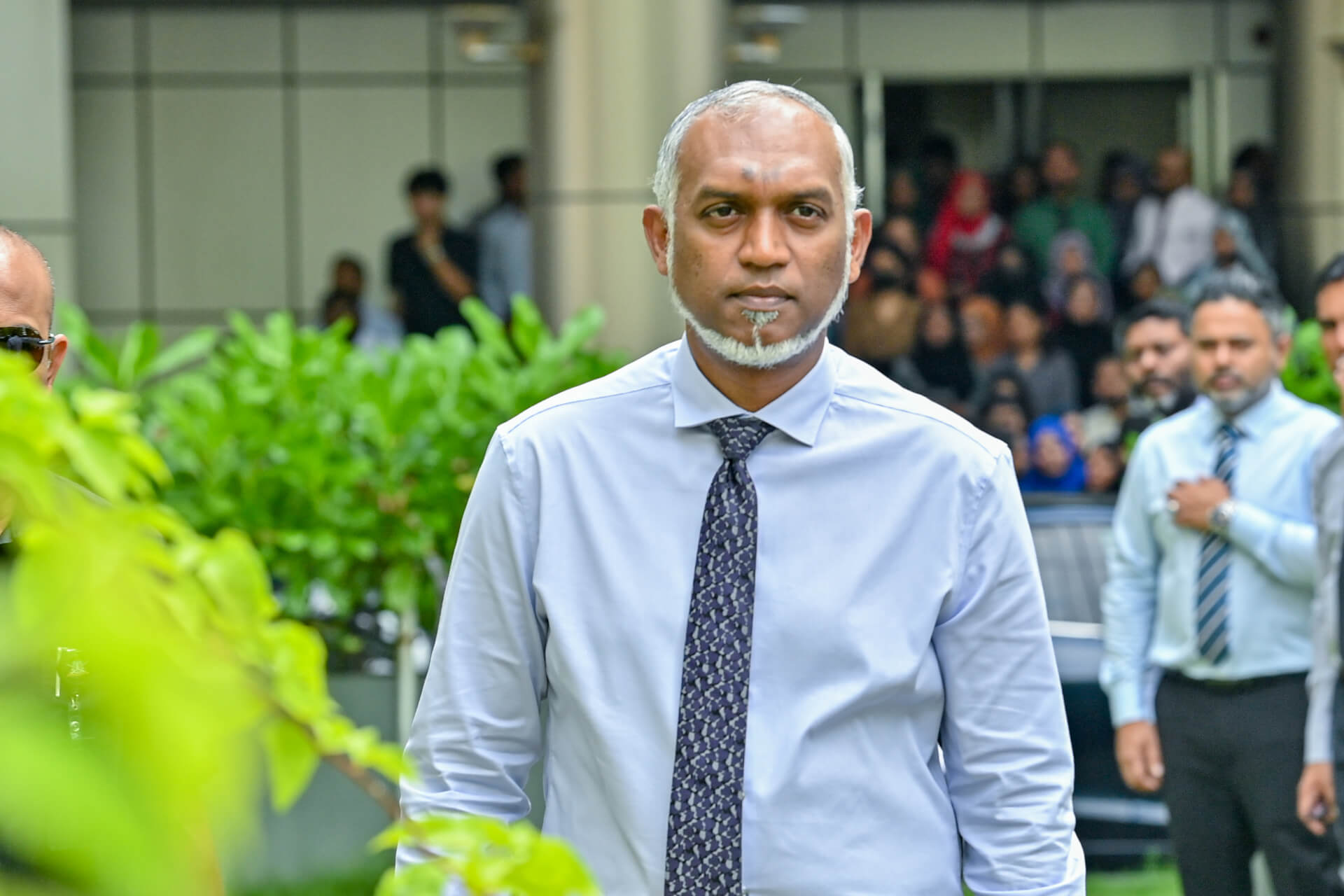The main opposition party of the Maldives, the Maldivian Democratic Party (MDP), is planning to remove the incumbent pro-China President, Mohamed Muizzu, from office. The MDP parliamentary group took the decision during a sit-down late Sunday.
Impeachment Motion
According to reports, the MDP, which holds a parliamentary majority, will soon submit an impeachment motion against Muizzu. As per Sun.mv, the MDP, along with the Democrats, has obtained enough signatures to file for an impeachment motion.
The main opposition MDP, which holds a majority in the Maldivian Parliament, is planning to submit a motion to impeach President Mohamed Muizzu, according to media reports on Monday.https://t.co/DzTz9ylwBs
— The Hindu (@the_hindu) January 29, 2024
Meanwhile, the Deputy Leader of MDP, Andhun Hussein, told The Hindu that the impeachment motion was being moved in as Muizzu is putting the Indian Ocean Region in danger and not allowing the Parliament to function properly by “using money, power, and with the backing of the military.”
Removal Process
According to the Maldivian Constitution, 1/3 of the members of Parliament must submit the resolution, and 2/3 of the members must support it. However, the Maldivian Parliament (Majlis) recently amended the impeachment process of the President, making it easier for the MPs to submit it.
At present, a 2/3 majority of the total sitting members is required to pass the impeachment resolution. After seven lawmakers resigned recently, the total number of sitting MPs has now been reduced to 80. Thus, at present, a total of 54 lawmakers are needed to oust the president.
The opposition MDP has 43 members. At least 12 MPs recently crossed from the MDP to the PNC. However, the party, along with 13 MPs from Democrats, still has support from 56 members, a number that is enough to impeach Muizzu.
PPM-PNC Vow to Block Impeachment
Meanwhile, the pro-Muizzu People’s National Congress (PNC) and the Progressive Party of Maldives (PPM) have vowed to block the impeachment process even if the opposition attempts to bring it. MP Ahmed Saleem said that the no-confidence motion against the president would not be allowed.
“An ending parliament is trying to remove the President. That will not happen,” MP Ahmed Thorig said, adding that some MDP members had gone against their party to approve the government ministers. He asserted that many MDP members, as well as the Democrats, would not sign the petition.
Disruption in Parliament
The elections for the Maldivian Parliament are scheduled for 17 March. At present, the Parliament is controlled by the opposition, making it difficult for Muizzu to function efficiently.
The impeachment attempt comes after clashes broke out between pro-government and opposition MPs inside the Majlis on 28 January, over the approval of four members of Muizzu’s cabinet. In videos that went viral, the MPs could be seen engaging in physical altercations.
MDP questions legality of move after 3 ministers re-appointedhttps://t.co/yMBHYIwjvX
— sun.mv (@sunbrk) January 30, 2024
The country’s constitution and a 2010 court decision mandate that the parliament must approve the ministers in the president’s cabinet. The MDP approved only one of the four proposed cabinet members after issuing a three-line whip. The names of Attorney General Ahmed Usham, Minister of Islamic Affairs Mohamed Shaheem Ali Saeed, and Housing Minister Ali Haidhar were rejected.
Following this, pro-government MPs from the PPM-PNC disrupted proceedings in the Maldivian Parliament and entered the chambers of the Speaker. Additionally, a no-confidence motion was filed by the PPM-PNC coalition against the MDP speaker, Mohamed Aslam and Deputy Speaker Ahmed Saleem, for misusing their powers to complement the interests of a particular party. However, the president reappointed the rejected ministers within hours of the vote.
Any change in the ruling dispensation of the Maldives will have an impact on the neighbouring countries, including India and China, which observe the politics of the island nation closely due to its strategic location.

